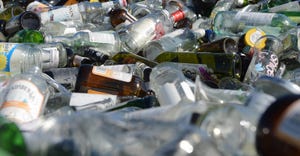Westlake Chemical to Report on Plastic Pollution Pellet Spills
Westlake Chemical has agreed to start reporting on spills of pre-production plastic pellets manufactured in its production plants.

Following engagement with As You Sow, a major petrochemical manufacturer, Westlake Chemical, one of the largest producers of low-density polyethylene, has agreed to start reporting on spills of pre-production plastic pellets, or nurdles, manufactured in its production plants. Plastic pellets are a significant source of ocean plastic pollution.
When the company did not respond last fall to a request to engage, As You Sow filed a shareholder proposal with Westlake and has been in dialogue with the company for several months. Westlake has now agreed to report:
Its plastic pellet production capacity data.
Plastic pellet and powder loss data to be reported to the Operation Clean Sweep Blue program operated by the chemical industry.
The amount of material recovered within its resin-handling facilities that is recycled.
Substantive information on best management practices.
Information on how it engages its supply chain to share best practices and help reduce/eliminate pellet losses elsewhere.
“We are pleased to see Westfield Chemical follow other industry leaders and agree to public reporting on plastic pellet spills and management,” said Conrad MacKerron, senior vice president of As You Sow, in a statement. “Baseline data expected to be generated from such reporting helps policymakers and other stakeholders to assess the scope of this growing problem.”
The Westfield action follows similar agreements reached last year between As You Sow and ExxonMobil Chemical, and Chevron and Phillips 66, co-owners of Chevron Phillips Chemical. Dow Chemical also agreed to report on pellet spills; As You Sow said it is in dialogue with the company on reporting details.
Due to spills and poor handling procedures, billions of pellets are swept into waterways annually during production or transport and increasingly found on beaches and shorelines, adding to harmful levels of plastic pollution in the environment. Plastic pellets are estimated to be the second largest direct source of microplastic pollution to the ocean by weight. When in the environment, plastics break down into small pieces that animals mistake for food such as fish eggs, causing fatalities from intestinal blockage.
In recognition of the agreement, As You Sow agreed to withdraw its shareholder proposal at Westlake. A similar proposal is pending at Occidental Petroleum, whose Occidental Chemical subsidiary is another major petrochemical manufacturer.
About the Author
You May Also Like
.png?width=300&auto=webp&quality=80&disable=upscale)

